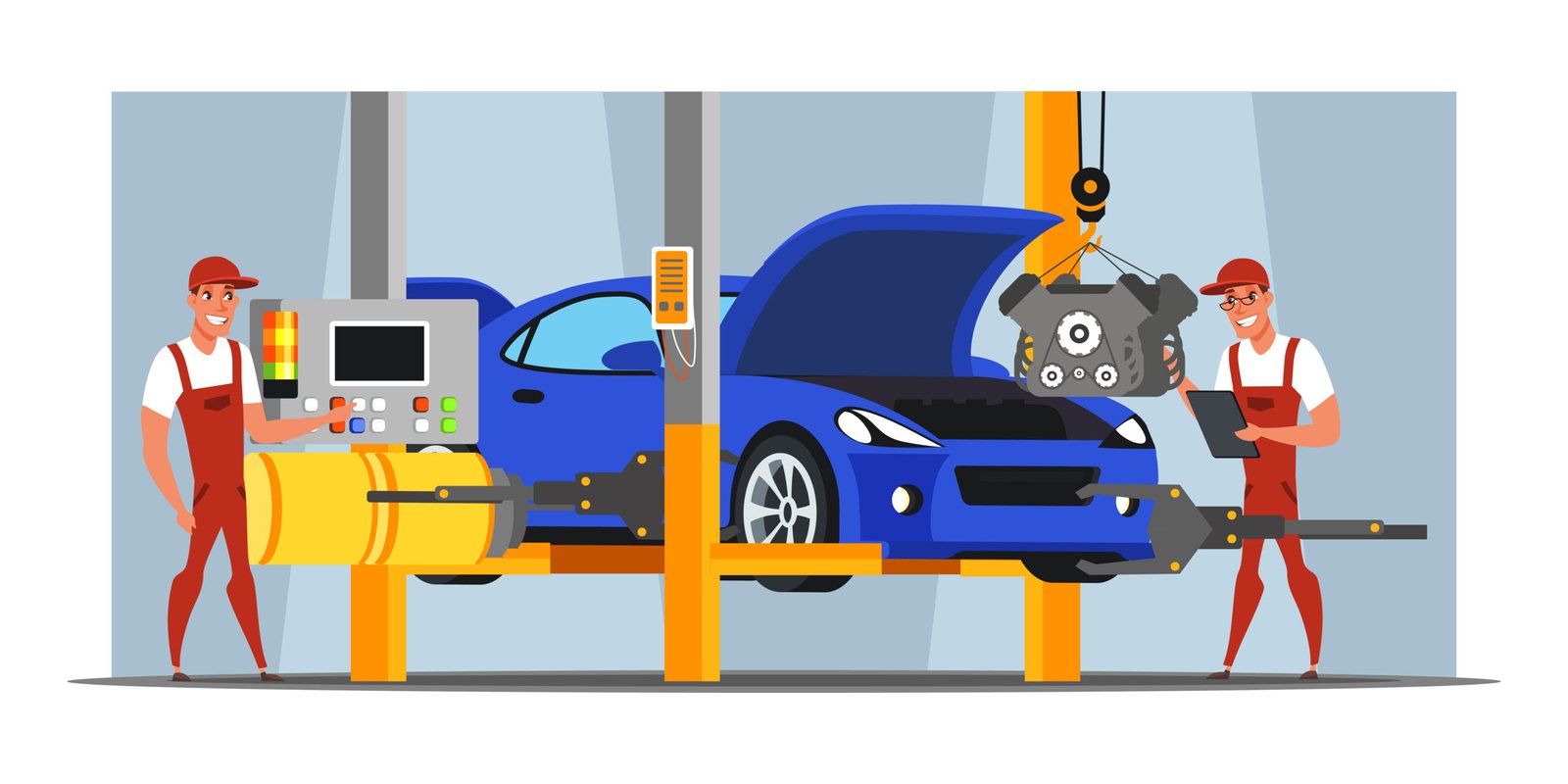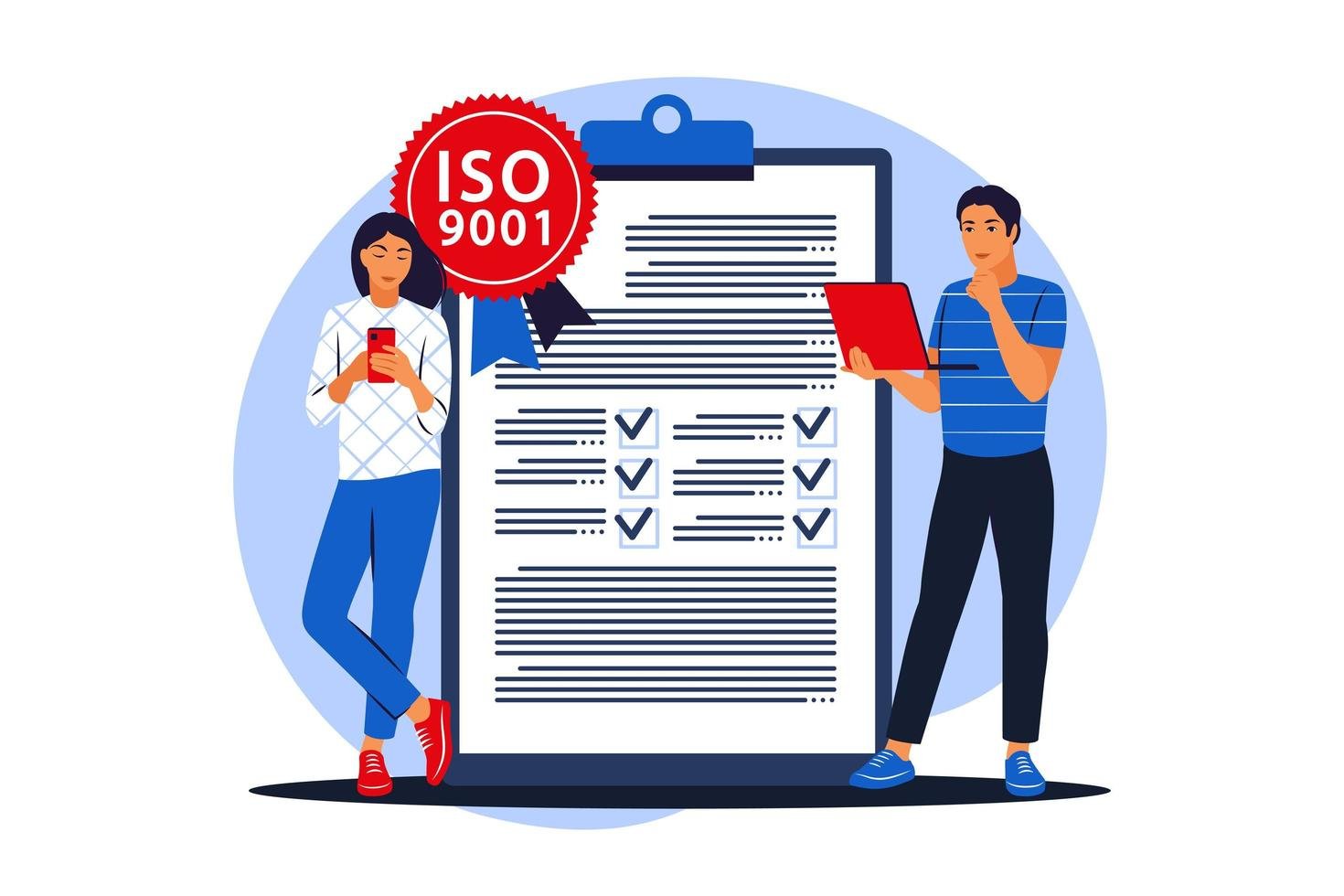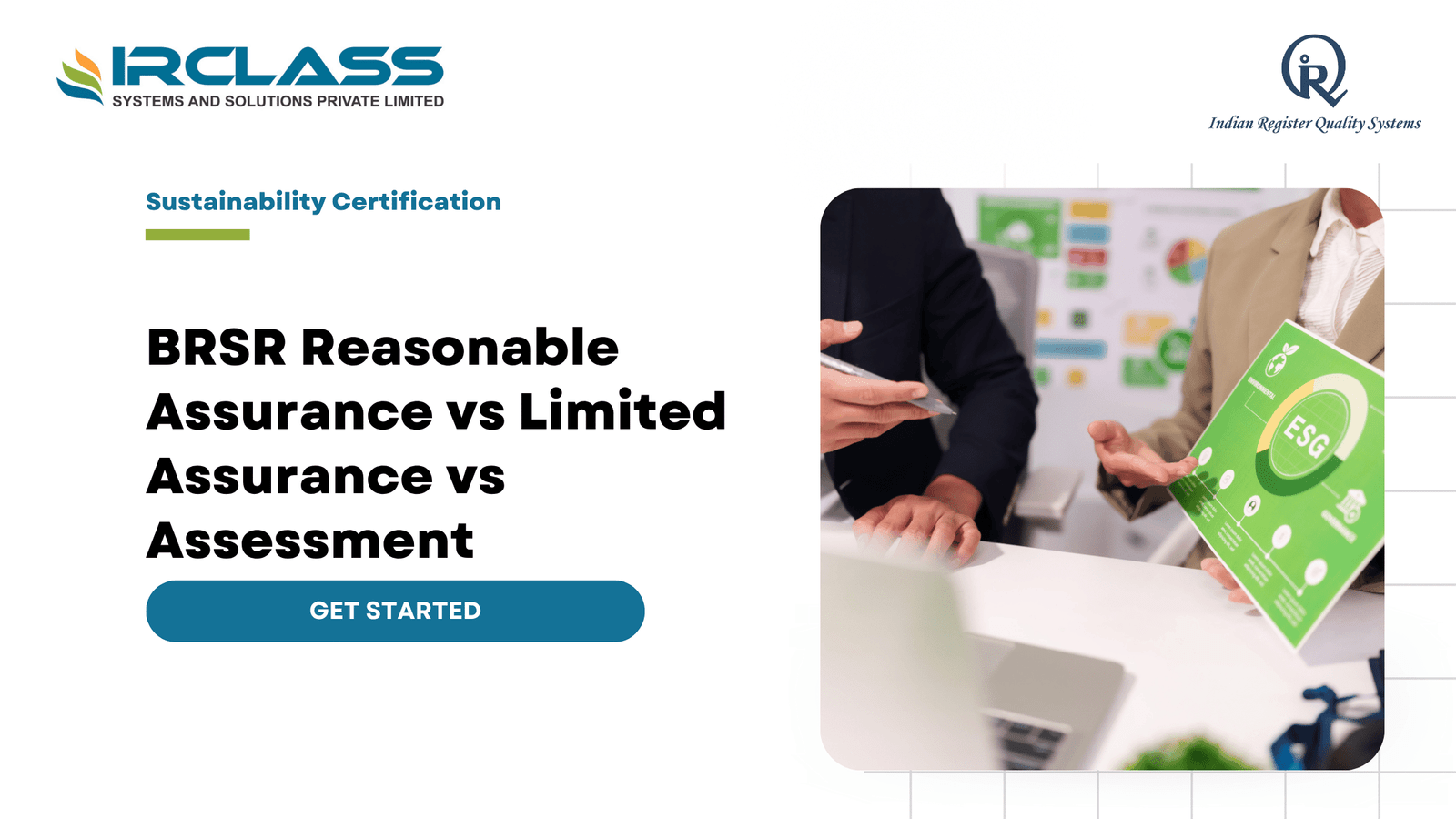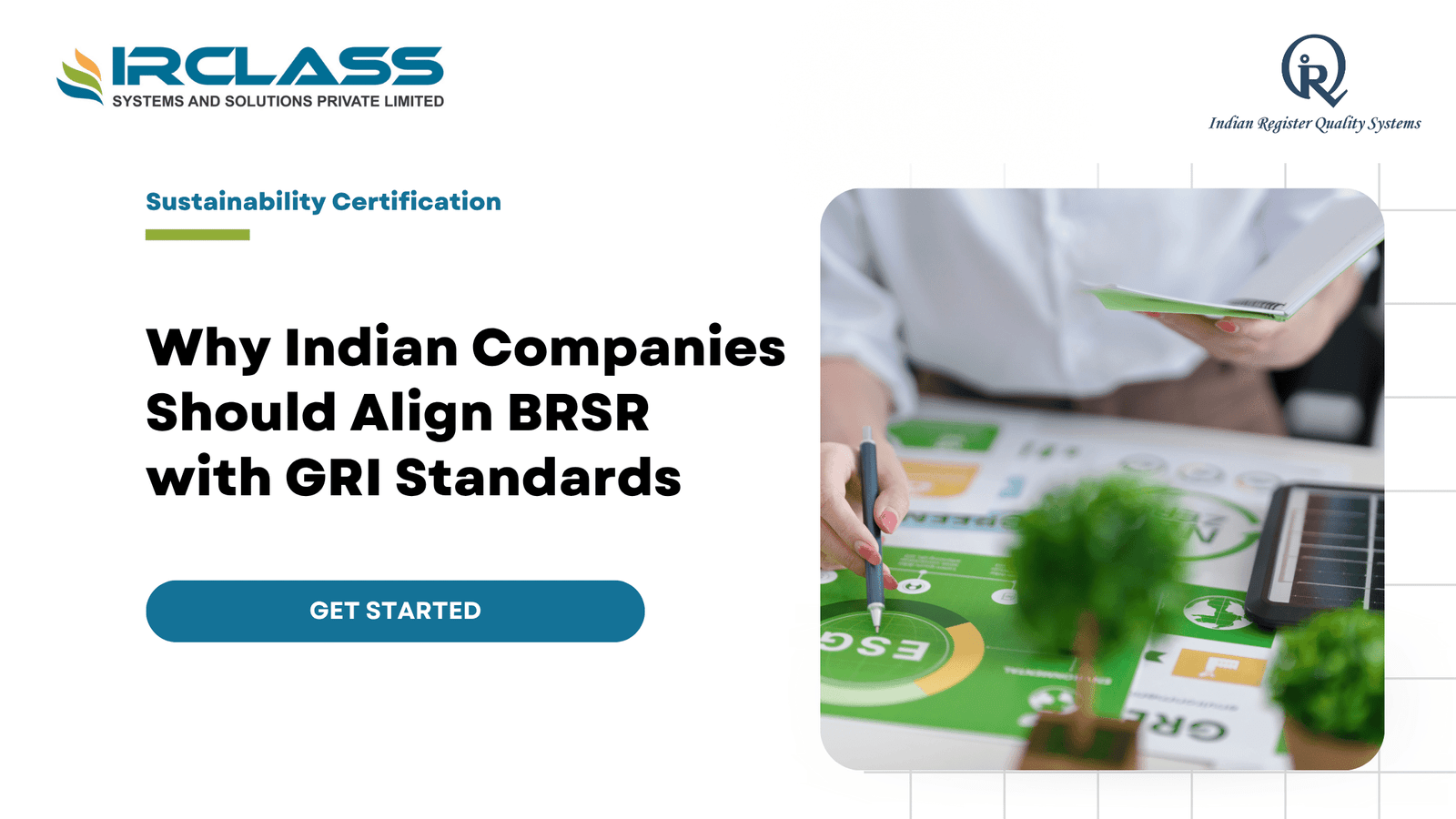Category: ISO 9001 Certification

The Importance of QMS Certification for Modern Businesses
In today’s fast-paced and competitive business landscape, consistency, credibility, and customer satisfaction are everything. As companies grow and adapt to changing markets, ensuring the quality of their products and services becomes more crucial than ever. That’s where a Quality Management System (QMS) certification steps in—not just as a formality, but as a strategic move to stay relevant and reliable. Whether you’re a startup trying to break into the market or an established enterprise aiming to scale globally, a QMS certification offers real, tangible benefits. It’s more than a certificate to frame on the wall—it’s a foundational tool that aligns your operations with global standards. Why QMS Matters More Than Ever The customer is much more informed than he was in the past. When choosing a particular service or product to buy, they do not only consider the price and the qualities of the service or product, but also the quality and reputation of the brand. In this environment, the QMS certification is a powerful statement—it tells your customers that you are committed to quality. Furthermore, a QMS fosters a culture of improvement. It motivates every department, every process, and every employee to try to do things in a better way. It also encourages innovation, which is an important factor in any organization that aims at expanding its operations. And in an environment where the only thing that is certain is change, creativity is your power. Boosting Business Credibility In my opinion, it is quite accurate to say that trust is the most valuable asset in the business world. However, whether you are in a bidding process, presenting a business proposal to investors, or in a negotiation process, your credibility is on the line. Having a QMS certification places you in a vantage position. It shows that you have systems to meet customers’ needs, legal requirements, and risks in a proper manner. This is the kind of professionalism that global clients and partners would expect to be offered. It is no longer about the tasks that are accomplished but the manner in which they are accomplished and the capacity to do it again. Driving Efficiency Through Structured Processes Every business, at some point, hits a wall with inefficiencies. Delays, redoing work, or poor synchronization—this results in time and money being thrown to the wind. A QMS framework introduces structure. It gives form, orientation, and purpose, and assists in setting goals and standards of performance. And when everyone in the organization is aware of the standard and the procedure, it just flows better. There is less time spent on correcting mistakes, less confusion, and more time is devoted to planning for the future rather than having to spend time on issues arising from operations. Customer satisfaction is not something that can be considered as an added bonus that a business can afford to offer; it is a basic need that has to be fulfilled. Think about the last time you were a brand advocate. They most likely offered good services and handled your queries professionally and efficiently. That is the beauty of a QMS in a nutshell, as it is a system that is designed to be flexible and adaptable to the needs of the organization. Certified businesses are often known to have mechanisms that allow them to hear the customers’ grievances and complaints and respond to them and enhance their products and services. Quality Management System and Risk Management are Two Sides of the Same Coin Business risks are inherent, and they include supply chain disruptions, compliance fines, reputational damage, among others. But the firms that can handle risk are the ones that reap the benefits of risk-taking. A good QMS framework is one that is able to forecast issues before they arise. It makes it possible to plan for a particular course of action rather than reacting to a situation as it unfolds. That’s a huge deal. Because in many industries today, being “good” is not enough. It demands one to be dependable when challenged, adaptable during a calamity, and accountable at all tiers of the organization. Gaining a Competitive Advantage One of the myths is that certification is required only for large organizations. The truth? SMEs are the most likely to benefit from it. In case you are venturing into new markets, aiming at large clients, or trying to persuade stakeholders of your capability, a QMS certification is your ticket. It levels the playing field. Suddenly, you are not just an option, but a certified business that meets the international standards. The Global View: QMS in a Borderless Market Today, companies are not restricted to the geographical location of cities or countries. In any global expansion, quality assurance cannot be an option, and this is why it is important to do it right. Local clients will always want to see that you are capable of offering them the same quality as the international companies. That is where QMS certification comes in. This shows that your business is not only ready to compete but also ready to dominate the market. The Employee Connection It is important to note that QMS is not just about documents, but it is about people. The employees who work in the certified environment have enhanced the processes, communication, and goals. This improves job satisfaction and, in turn, reduces the level of turnover. A Brief Summary: Why QMS Certification Is Beneficial Here are five brief observations that will help to explain why today’s businesses cannot afford to ignore QMS certification: You may be wondering if getting certified is a very tedious process, but it is not as hard as you may have thought. Some organizations do not want to undertake the process because they think it will consume a lot of time, money, or energy. But it is not as difficult as it has ever been if the right approach and attitude are applied. It is not a case of ticking the box, but rather a chance for growth. Let Your Certification Speak for You

The IRQS Edge: What Sets Our ISO 9001 Training Apart from the Competition
ISO 9001: Your Competitive Edge Discover how IRQS offers industry-leading ISO 9001 training with expert faculty, practical insights, and global recognition that sets us apart from the rest. In today’s fast-paced business world, achieving excellence is not just a goal—it’s a necessity. Organizations that prioritize quality management gain a competitive advantage, ensuring consistency, customer satisfaction, and continuous improvement. This is where ISO 9001 training comes into play. But with so many training providers in the market, what makes IRQS stand out? When it comes to ISO 9001 certification and training, IRQS is more than just a name. Backed by decades of experience, a global presence, and a commitment to delivering industry-leading expertise, IRQS offers unparalleled training programs that go beyond theory. It’s not just about learning the standard; it’s about understanding its real-world application and leveraging it to drive business success. Industry-Backed Expertise that Speaks for Itself IRQS was founded in 1992 and has been offering certification and training services to different organizations for 29 years. We have served over 12,000 clients, and the quality of experience, knowledge, practical training, and dedication we possess cannot be measured by numbers alone. Unlike other training programs that are broad and encompassing of all aspects of ISO 9001, IRQS has a unique way of categorizing its training by sector. Our programs are aimed at ensuring that your team gets the knowledge and understanding relevant to your line of business, whether it is manufacturing, IT, health, engineering, food & beverages, or marine. A Practical Approach to Mastering ISO 9001 The third drawback of ISO 9001 training is that most of the training programs are more theoretical than practical. At IRQS, we make sure that this gap does not exist by including case studies, practical exercises, and group discussions in our training programs. Our training is not only the explanation of the requirements of the ISO 9001 standard but also the methods of its implementation. It is not only the content knowledge that the participants acquire during the training; they also understand what is needed to bring about change in their organizations. No matter whether you are looking for process improvement, risk management, customer satisfaction, or compliance, our training will enable you to put into practice what you have learned from the first day. Certified Instructors with Global Recognition This is why it is advisable that the trainers who are conducting the training sessions are well-trained and knowledgeable in their fields. IRQS is privileged to have a team of certified professionals and experienced industry specialists in the field of quality management, auditing, and compliance. Our trainers are not only familiar with the ISO 9001 standard but also apply it in their work. They have a clear vision of how quality management impacts companies on the international level, which means that they offer practical knowledge rather than theories. This practical experience enables every participant to have a real-world touch on how to implement ISO 9001. Interactive Learning for Maximum Retention Lectures as a form of training can be very unproductive and uninteresting most of the time. In this case, IRQS differs from the conventional training approach and makes the learning process more interactive for the participants. Our training sessions are not only informative but also life-changing as we engage in role-play, discussions, and solving real-life cases. This is preferable to the memorization of the ISO 9001 requirements because the participants are actively involved in the process, and this makes it easier for them to understand the information and implement it. Global Reach, Local Expertise IRQS is not only a national training organization but also an international organization that provides ISO certification and training. We have more than 42 offices in different parts of the world such as India, Dubai, Sri Lanka, Singapore, USA, UK, Greece, China, Thailand, and Korea, and our training programs follow international business standards, but we also take into consideration the legal aspects of each country. This ensures that irrespective of the size of the organization or the geographical location of the organization, it gets the best training and information that is relevant to its market. Whether you are a small business or an international business, IRQS ensures that your training needs are met as required. Seamless Integration with Organizational Goals It is also important to understand that ISO 9001 is not just a compliance tool but a tool for enhancing business. Our training programs are designed to meet your organizational goals and objectives, making quality management not just a mere compliance exercise but a strategic advantage. When ISO 9001 is implemented in the organization, it will mean that the organization will be able to work with fewer errors, with more satisfied customers, and will be able to achieve long-term success. Comprehensive Training Programs Tailored for Success To meet the learning needs of the clients, IRQS has come up with different ISO 9001 training programs. No matter whether you are a beginner or an experienced worker, we have a clear learning curve for you. For the organizations that are already certified to ISO 9001 and for the organizations that need to be familiar with the new version of the standard and the best practices. A Strong Focus on IT Security and Compliance In the modern world, quality management is linked to data protection and regulatory compliance. IRQS welcomes this interface and integrates IT security solutions into its training curriculum. We also cover data protection and cybersecurity threats and compliance with ISO 27001, which not only assists organizations in obtaining ISO 9001 certification but also enhances their information security. This additional training makes IRQS a complete solution for organizations that need quality and security at the same time. Recognized by Leading Authorities Accreditation and recognition are very crucial in ascertaining the credibility of the training. IRQS is affiliated with internationally accredited certification organizations in order to ensure that the training provided is in line with global standards. Organizations that complete their training with IRQS gain not just knowledge but a credential that holds

Implementing ISO Quality Management System: Achieving Excellence
Implementing ISO Quality Management System: Achieving Excellence QMS, or quality management system, refers to a well-defined management system that ensures systematic documentation of different operational stages. It includes well-defined documents of procedures and demonstrates responsibilities for achieving the best quality policies in an organization. A QMS has a significant role because it helps coordinate and develop the activities in an organization. The quality management system caters to the requisites of customer and regulatory norms. All these help improve the effectiveness and efficiency of the organization to the next level. The best-in-class quality management system determines the company’s performance in more ways than one. The perks of having a well-defined QMS are – ISO 9001 – The benchmark standard ISO 9001 is the top ISO Quality Management System. The ISO certification is globally recognized and implemented across diverse industrial sectors. It is a popular quality management system standard. ISO 9001 defines the prime requirements for an efficient QMS. All organizations can use the ISO framework to develop customized programs. The different ISO standards related to quality management systems fall under the ISO 9000 series. ISO 9001 is the international standard offering a prominent solution to organizations searching for a robust quality management system that meets their needs. The framework is apt for organizations with different requirements, simplifying the hassles to the next level. Focused areas of a QMS – The different facets of a robust quality management system help attain the organizational goals. With the best practices, it is convenient to meet the dynamic requisites with optimal resources. A robust QMS, based on the ISO guidelines can address the unique needs and meet the following – Achieving excellence with ISO 9001 The ISO Quality Management System based on ISO 90001 incorporates a systematic and process-based approach. The framework highlights the importance of comprehending the cohesive activities in an organization. It mandates an organization to clarify the operational processes, recognize the key performance indicators (KPIs), and define the quality objectives for continual improvement. Better customer satisfaction ISO 9001 framework helps meet the customer requirements. It simplifies the ways of understanding and sufficing the expectations of the clients. Efficient operations The ISO standard boosts organizations and their operations. It helps streamline the procedures, reducing inconsistencies and inefficiencies. Improvement and consistency ISO 9001 demonstrates a systematic approach for optimal quality management with the scope of continual improvements. Professional engagement Ensure proactive professional engagement of employees in the quality management process. The ISO 9001 framework fosters a proactive and professional culture of employee accountability with enhanced engagement. Trade benefit ISO guidelines enhance the reputation of an organization and help the company earn a competitive edge among customers, partners, and stakeholders. Why does it matter? Significant steps of achieving excellence A customized QMS approach – ISO for your organization ISO standard framework provides a strategic framework with a flexible and disciplined approach for optimal quality control and management. The guidelines facilitate organizations to create product targets and achieve quality goals in the long run. ISO 9001, the global standard of QMS implementation is also compatible with various ISO frameworks. (for example – ISO 14001). One can implement the best standards with clarified documentation steps and eliminate redundancies. The ISO guidelines apply to companies involving operations of designing, manufacturing, and supplying. All organizations belonging to the following industrial sectors can leverage the benefits of the ISO framework. Highlights – At a glance The implementation of an ISO Quality Management System helps ensure optimal compliance with global regulations and requisites. A company can exhibit a regulatory-compliant image and ensure customer-focused commitment to offering high-quality services. The ISO standard implementation helps streamline the operational processes and eliminate the chances of unwanted operational risks and errors. With the best QMS practices, achieve operational success and excellence. Closing note The diverse benefits of a robust QMS backed by the ISO 9001 framework extend beyond the compliance requirements. It is an ideal solution for an organization willing to amplify the trade options with optimal quality commitment. The quality maintenance practices contribute to sustainable growth, promoting competitiveness with an enhanced reputation in the global marketplace. Ensure a proactive quality management and maintenance approach to achieve excellence in the long run.

IATF 16949 vs ISO 9001: Understanding the Key Differences for Automotive Manufacturers
Many corporations employ more than one quality assurance program for optimal functionality. One requires maximized quality assurance for their production unit to guarantee top-grade products and services. It is critical for the automotive makes to meet the highest standards of quality and safety. The competition is growing at an incredible pace, and thus, ISO 9001 and IATF 16949 have become the go-to resource for manufacturing resources. ISO 9001 and IATF 16949 programs have similarities and differences. Recognize the prime distinctions between these two quality assurance programs. It will help you choose the ideal certification requirements for your business. ISO 9001 and IATF 16949 are the best-in-class quality assurance programs in the automotive industry. The certification program and quality assurance framework help organizations establish the critical standards, guidelines, and ideal practices related to manufacturing and supplying the highest quality products in the market. Both certification programs emphasize quality management. But there are prime aspects that make the certifications unique in their own ways. Identify the keyways and consider the prime aspects before choosing one over the other. Determine the ideal quality assurance program that can suit the best for your organization. Read on and learn more about ISO 9001 and IATF 16949 by highlighting their differences and similarities. Understanding ISO 9001 The International Organization for Standardization, or ISO, defines world-class standards for various quality control requirements. One can find the certification programs in 170 countries across the world. The ISO norms are suitable and applicable for food safety, product quality, manufacturing processes, management systems, and other environmental issues. An organization can acquire the certification through a third-party auditor. The certification confirms that the company adheres to the industry-specific quality requirements. This certification exhibits the reliability of the company. Quality assurance certifications for automotive companies are critical to ensure vehicle safety. There are various versions of ISO 9000, including – 9001, 9004, and 9002. For example, ISO 19000 focuses on the three fundamental elements of quality management. It includes people, processes, and end products. These principles are critical to assure product excellence. But these do not focus on improving the work environment. It is the prime reason IATF 16949 has become an extensive choice. It delivers a comprehensive solution. Understanding IATF 16949 IATF stands for International Automotive Task Force. The IATF 16949 certification defines the critical Vehicle Production Quality Management System Requirements. It got established by automakers more than ten years ago. The automotive manufacturers must conform to the safety norms and pass the quality inspections to receive certification under IATF 16949. It involves more than the conventional quality assurance measures. IATF 16949 focuses on the safety of the industrial plant and specifies the ideal techniques of automotive manufacturing. It covers everything from start to finish, including logistics. The International Automotive Task Force, or IATF, is a well-developed quality management system standard. It is an excellent choice for the automotive companies. The International Standard of Quality Management System Requirements for Production, Installation, and Maintenance of Vehicles was developed to regulate quality procedures across the world. Prime differences – ISO 9001 versus IATF 16949 Organizations can be certified to ISO 9001 and IATF 16949. A company can use its certification to exhibit its commitment to quality management and ensure continuous improvement in the automotive industry. Organizations that are exclusively certified to ISO 9001 can simplify the requirements and adhere to the evolved norms of IATF 16949 to promote better quality management. How? Because IATF 16949 certification depends on ISO 9001, easing the requirements to the next level. However, organizations not certified to ISO 9001 can still pursue certification to IATF 16949. In such a case, the organization must implement a competent and comprehensive quality management system that satisfies all the requirements of both standards. The penultimate difference between ISO 9001 and IATF 16949 is the approach. ISO 9001 is a general quality management system standard. It is not specific to the automotive industry. It contains the usual requirements applicable to all organizations. With IATF 16949 certification, one can meet the additional specific requirements for automotive suppliers. Recognize the ideal choice. The differences between ISO 9001 and IATF 16949 are diverse and numerous. The differences are related to the respective industries, including manufacturing and supply chain. ISO 9001 focuses exclusively on the internal quality processes. IATF 16949 focuses on the supplier quality management systems. ISO 9001 got published in 1987, and IATF got published in 2002. However, organization owners must consider both. Simply put, if you have the ISO 9001 certification, you should also consider IATF 16949. Selecting the ideal certification program that will work best for your company could be exhausting. Companies require the best quality management standard to stay in the competition. Hence, it is vital to identify the benefits. It will help you realize the best quality standard for industrial operation. Despite the differences of IATF 16949 vs. ISO 9001, identify the crucial benefits to make the best choice. a) Enhanced internal management b) Reduced waste for manufacturers c) Increased efficiency, operational productivity and ROI d) Enhanced employee engagement e) Better customer retention and acquisition f) Consistent improvement and performance measurement Make an informed choice. Recognize the perks of becoming certified to a quality management certification or lab standard. It must increase value to the organization and enhance the organizational operations to the next level.

IATF 16949 vs. ISO 9001: Key Differences and Transitioning Tips
Quality management systems or QMS are vital for organizations. The system is essential to ensure that the products and services follow and live up to the expectations of the customers and meet their requirements. Simply put, it exhibits if the products or services are of high quality. ISO 9001:2015 and IATF 16949:2016 are two extensively recognized standards for quality management. However, there are multiple differences. ISO 9001 is a generic QMS standard. It is apt for all industries and sectors. Find its application everywhere – from agriculture to manufacturing. The QMS is maintained by ISO. In contrast, the IATF 16949 reflects features that make it completely different. The AITF standard is maintained by the International Automotive Task Force. Even though there are differences between IATF 16949 and ISO 9001, the foundation is exclusive. It means both are built on the same foundation. For instance, a company in the automotive sector can implement both ISO 9001 requirements and IATF 16949-specific requirements. Objective – The prime difference ISO 9001:2015 is an all-inclusive quality management standard, and it can be applied to any type of organization. It is apt for all organizations, regardless of size, type, or industry. The quality management system outlines the fundamental requirements for developing, implementing, and maintaining a QMS. It ensures optimal focus on customer satisfaction, continual improvement, and engagement of stakeholders. IATF 16949:2016 certification comprises a specific quality management standard for the automotive industry. It is based on ISO 9001:2015. The IATF 16949:2016 certification includes additional requirements, suitable for the automotive industry. It covers critical aspects like – product traceability, production control measures and service provision, and dynamic customer-specific requirements. IATF 16949:2016 is ideal for automotive manufacturers and product suppliers. In fact, the certification is mandatory for those operating with OEMs or original equipment manufacturers in the automotive industry. Additional requirements – Marking the difference. Both ISO 9001:2015 and IATF 16949:2016 define the prime requirements for a QMS. But there is more. The IATF 16949:2016 certification comprises additional norms and requirements, specific to the automotive industry. The prime differences in requirements are – In a nutshell – A comprehensive overview There are multiple differences between IATF 16949 vs. ISO 9001. But there is more to explore. In fact, IATF 16949 is based on ISO 9001 norms, and it combines the dynamic ISO 9001 requirements. Both certifications offer integral benefits, including – a) Efficient internal management b) Reduced wastage in production c) Enhanced efficiency, productivity, and profits d) Optimal employee engagement e) Maximized customer retention and acquisition f) Consistent production quality Transition is a critical step – Explore the details. The transition from ISO 9001 to IATF certification norms is a step-by-step journey. Experts can help you through the transition. With them, identify the diverse benefits of the updated IATF 16949:2016. The essential aspects of the transition process 1. Obtain a fresh overview of your quality management system 2. Attend the transition training courses and recognize the prime differences 3. Recognize the prime changes to enjoy the diverse improvement opportunities 4. Ensure a well-documented system and obtain an overview of the additional requirements for the quality management standard 5. Implement new requirements on leadership, risk, and context of organization 6. Review the effectiveness of the current quality control system 7. Maintain an impact assessment case study to ease the needs A straightforward approach – Realize the essentials. Transferring the IATF 16949:2016 certification is an effortless solution once you realize the vital rules. One can consult an expert and review the certification body’s contractual terms and conditions. It will help you facilitate the transition process and understand the audit cancellation policies and fees. The quality assessment specialists and service team of experts ease the requirements, helping you navigate the needs for a fuss-free certification transition. ISO and IATF certifications – Explore the benefits. IATF certifications and ISO certifications necessitate optimal effort and commitment. It depends significantly on the manufacturer. Despite the critical steps, one must focus on the following aspects and avoid inconveniences. Closing advice Make a wise choice by considering expert assistance and smoothen the transition process for certification requirements. Ease the worries with the industry specialists and enjoy their professional assistance.

The Top Benefits of ISO 9001 Certification for Small Businesses
ISO 9001:2015 is a globally-approved QMS or Quality Management System. It was published on 15 September 2015. For small or large enterprises, a quality management system is critical in every professional sphere. The ISO framework is ideal for implementation by any enterprise whether it is large or small. The QMS guidelines are appropriate regardless of the industrial sector. Large enterprises have huge resources and can manage the requirements of developing a robust QMS. But the small businesses lack the resources and often lose in the race. The certification program brings the best solution without making it inappropriate for businesses with limited resources. About the ISO certification – A quick overview The International Standards Organization or ISO defines the “standards” for various systems and aspects related to an organization. The guidelines refer to the management, quality, security, and effectiveness of the products, operations, or services provided by the organizations. ISO helps in developing different types of organizational Standards for all businesses and processes. ISO 9001 certification framework delivers the ideal guidelines to ensure the premium quality of products and services. It is particularly beneficial for small businesses as the certification is beginner friendly. Also, it is vital for new businesses and startups. The goal of ISO 9001 certification is to design a process that systematically and efficiently ensures the production of quality products and services alongside consistent process improvement. Operational efficiency for small businesses Small businesses can gain from the effective framework of ISO 9001. It enhances operational efficiency to the next level and develops a structured system for consistent quality management. From efficiency to the distribution of roles in the QMS, the ISO framework can help a small business earn a competitive edge in the long run. For this, it is highly beneficial for small enterprises to consider getting the ISO 9001 certification. Revenue-making prospects and profit Revenue and profit-making opportunities depend on service quality and products. If you can find a suitable solution for quality maintenance, it gets easy to expand the scope. Small businesses need to focus on setting goals and objectives for augmenting the professional scope. It is critical for every new and emerging organization to look for opportunities to improve and expand. All these get easy to accomplish with the implementation of the ISO 9001:2015 standard. Small business management – Better with ISO standards ISO 9001 quality management system brings a proactive approach to a small business. With the framework, you can achieve a dual advantage. Get a chance to enhance the QMS and the overall production process. At the same time, ISO acts as a tool for acquiring and retaining clients and customers. Why? Because it includes a steady and consistent customer-oriented effort. From top management to employee morale – the ISO framework impacts every aspect positively. Effective marketing tool for a small business In the current economic scenario, marketing makes a critical impact across all industrial sectors. Regardless of the industrial domain, it is vital to maintain and develop an effective marketing tool. Otherwise, it gets difficult to make a robust entry into the competition. One of the toughest challenges for a small business founder is obtaining the gateway to the market and exhibiting the USP of the products or offerings. Having the ISO 9001 QMS certification can work like a charm! Most small businesses need a reliable tool to exhibit brand value. A company can leverage the benefits of easy market entry for its products. It is essential for the business expansion of the company. With ISO certification, stand apart from the rest in the competition. Improved credibility and business scopes Quality determines credibility. There is no alternative to quality, and one needs to maintain it continually. The prime benefit of implementing the ISO 9001 guidelines is the structured outcome. The framework facilitates small business operations and thus develops a credible brand image. The operational system solidifies, and the quality automatically enhances with the planned approach. Get a chance to implement innovative techniques to expand the business scope and transform the small business into a large enterprise with ISO 9001. Consistency in quality and management Acquiring the ISO certification for a small business can be effective in more than one way. With the ISO 9001 standard implementation, get a chance to sign contracts or bids with the top suppliers and vendors in the industry. How? Because your business earns credibility. Suppliers, vendors, and third parties can rely upon the quality of the offerings. A small business can finally get a chance to solidify a firm marketplace as a professional company exhibiting a commitment towards high-quality offerings or products. It provides a competitive edge in the industry. A well-defined quality management system helps in reducing and managing the cost for optimal error management. Resource wastage due to errors and reworks can be easily avoided with an efficient QMS. All these help in consistent quality management in the long run for a small business. The impact on the customers Quality management system with the ISO framework works towards the customer acquisition goal. Although it helps in quality maintenance and improvement, the impact on the customers is far-reaching. It develops a trustworthy image for the company’s profile and enhances its reputation. Thus, accessing a larger client base and retaining customers becomes easy for a small business owner. With the implementation of the ISO framework, get a chance to nurture the customer relationship and boost the customer satisfaction index to the next level. Better professional relationships One of the prime essentials in a small business or startup firm is to develop a reliable relationship with the suppliers and stakeholders. Why? Because overall success depends on such factors. A quality management system that matches global standards ensures an efficient and consistent procedure for the business. Thus, the new and existing suppliers can rely on the offerings without second thoughts. The quality consistency factor allows several professional scopes to flourish for a small business. Get certified for a better future for your small business. The benefits are valid for

How To Maintain Your ISO 9001 Compliance With Remote Workers?
ISO 9001 is a global standard certification that determines the requirements necessary for ensuring a quality management system. QMS or quality management system is crucial for any organization and the ISO 9001 acts as the standard benchmark. It defines the ability of the organization or business to deliver high-quality products consistently. But what does high-quality imply? It means the products can successfully meet the regulatory requirements and customer expectations. The standard ISO 9001 of the 9000 series is a globally-accepted certification that assures the credibility of the organization in terms of operational delivery.

How can a startup benefit from ISO 9001 certification?
Awareness regarding ISO certifications is crucial in every sector. For business or service-based organizations, the ISO certifications hold major significance. The ISO 9001 certification is particularly vital as it holds the ability to upscale a small venture into a bigger enterprise. One of the most popular standards among the many ISO certifications in various industrial aspects is the ISO 9001 quality management standard. For more than thirty years, millions of organizations have understood the significance of ISO 9001 certification.

What is ISO 9001 Certification and Why is it Important? Complete ISO 9001 Certification Guide
In today’s highly competitive business world, organizations of all sizes are constantly seeking ways to improve their bottom line. In most cases, it is management’s job to find cost-effective ways for doing business. This is often done through streamlining operations, increasing efficiency, and reducing manufacturing costs.
Search
Useful Links
Recent Posts

BRSR Reasonable Assurance vs Limited Assurance vs Assessment

GRI Reporting and SEBI’s BRSR: Building Credible ESG Reports for Indian Companies



